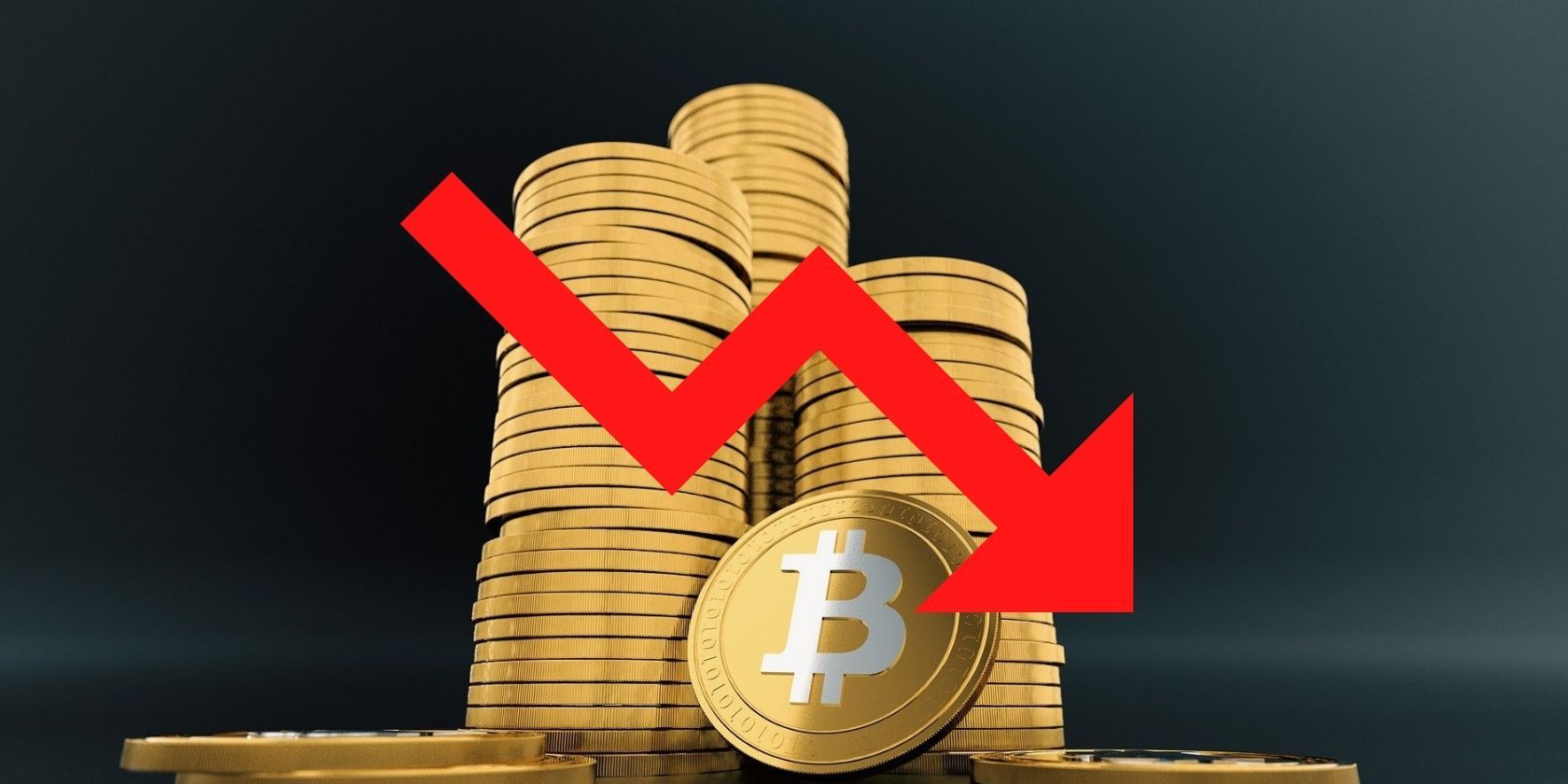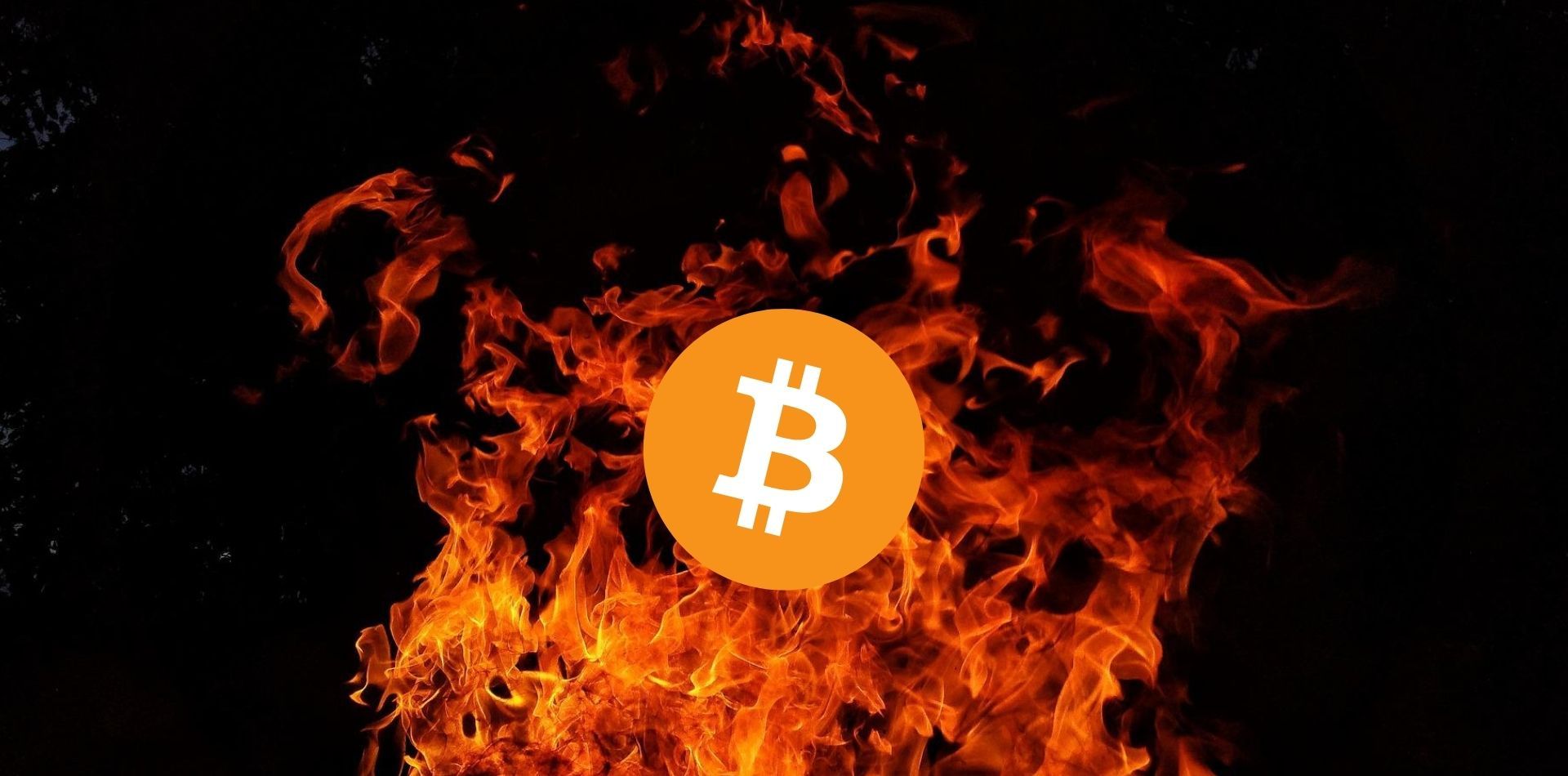We all know how volatile and unpredictable the cryptocurrency market can be. One month a coin could be at the height of its value, and the next, it could have almost no value at all. Unfortunately, this is simply the name of the game when it comes to crypto. But what would happen if the market's oldest and most valuable asset, Bitcoin, dropped to zero?
Bitcoin's Volatility
Because Bitcoin isn't a stablecoin and therefore isn't pegged to any real-world asset, it can be just as susceptible to crashes as many of the other cryptos in the industry. If you follow Bitcoin and its price, you've likely seen that there's often no knowing what will happen next. Many investors never see a crash coming, and this is why putting money into crypto can be dangerous.
Bitcoin saw its peak price of around $67,000 in November 2021, but it has been tumultuous since this all-time high. Bitcoin saw a big crash in early 2018, then another in May 2021, and then another in the same month that it reached its peak value. And the trend certainly continued in 2022.
So, it's safe to say that even the biggest coins can crash just as quickly as any other. But what if a crash took place that took Bitcoin's price all the way down to zero? Is this possible, and what would happen if such an event occurred?
Can Bitcoin's Price Drop to Zero?
It is technically possible for any cryptocurrency's price to crash to zero, as seen with the Terra Luna price crash. But, for something as popular and valuable as Bitcoin, some huge shifts would need to take place to allow for such a catastrophic loss of value. It's important to understand Bitcoin's functionality to understand why this is the case.
Bitcoin is often bought as a long- or short-term investment plan. Some like to buy it when the price dips in anticipation of another increase and then sell it once it occurs. Others buy Bitcoin with the intention of holding onto it for much longer, despite the crashes and hikes that may follow their purchase.
But there are individuals who believe Bitcoin (or another crypto) will replace traditional tender one day. These crypto enthusiasts often believe that centralized banking is dangerous or unfair and that decentralization is the future. For a person who holds such a belief, the purchase of Bitcoin goes beyond just an investment. It speaks to their passion for cryptocurrency.
And now, Bitcoin can also be used to buy goods and services in various countries worldwide. Some nations have even adopted it as a national tender! El Salvador adopted Bitcoin as legal tender in 2021 (with very mixed results), with other countries even developing cryptocurrencies for citizens to use as a payment method.
Additionally, it would be incredibly hard to dissolve the entire Bitcoin network, even if it became highly restricted or illegal in the majority of countries worldwide. With over 100,000 active nodes on the Bitcoin network spread around the globe, it would take the loss of faith or interest of these nodes for the blockchain to be truly destroyed.
Destroying Bitcoin wouldn't be the same as taking down a website. Its complex infrastructure, along with its decentralized nature, gives it a strong foundation that isn't easy to destabilize, even if you are a powerful government.
What's more, big players in the crypto industry can have a huge influence on the price of Bitcoin. Known as crypto whales, these individuals or groups own huge amounts of cryptocurrency, allowing them to manipulate the market when they deem it necessary. If these whales don't want Bitcoin to fall to zero, they can prevent this from happening in certain scenarios.
These factors all make a total Bitcoin crash very, very unlikely. But there are other influences at play that put Bitcoin's value in danger.
What Puts Bitcoin's Price at Risk?
One of the biggest arguments used by those who don't support Bitcoin is that it isn't backed by any kind of physical asset. Additionally, some say that it doesn't yet have enough prevalence in the traditional economy to succeed. Of course, your country's national currency is likely still a lot more versatile in your day-to-day life than Bitcoin when it comes to buying goods, meaning it has more of a practical use than the latter.
Bitcoin's continued struggle with scalability is also putting its future at risk. As more and more individuals invest in bitcoins, the transaction load on the blockchain increases. This creates something called latency, wherein it takes a long time for each transaction to be verified by miners. Because Bitcoin's block size is pretty small, the blockchain can only process a limited number of transactions every minute. Many see this factor as Bitcoin's Achilles heel.
A range of other factors also affect Bitcoin's price. Even a simple tweet from Tesla and SpaceX CEO Elon Musk caused a crash in 2021, so it's safe to say that Bitcoin is not a stable asset.
It's also important to remember that, above all, Bitcoin is an asset driven by demand and not much else. This also makes it incredibly volatile.
So, let's say Bitcoin's price did somehow fall to zero. What effect would this have on the market?
What Would Happen if Bitcoin's Price Dropped to Zero?
Let's imagine that, one day, every country in the world illegalized the trading, mining, and spending of Bitcoin, and its price crashed to zero. While the network itself could still remain intact, such a drop would still cause monumental financial losses for millions of individuals worldwide. There would be no way to sell Bitcoin back to exchanges, as they would be legally required to de-list it for trading. In short, Bitcoin investors who hadn't already cashed out would be in an impossible situation.
Moreover, the total crash of Bitcoin would send huge waves through the crypto mining industry. The Bitcoin mining market alone is mammoth in size, with many relying on it to make a living. With Bitcoin no longer having any value or use, mining rewards would fall to nothing, and almost a million miners would be forced to find another revenue stream. Mining farms would also have to close, causing the unemployment of thousands.
Hundreds of other companies would also be affected, including those who deal in Bitcoin payments, lending, or swapping. In short, the total crash of Bitcoin would be devastating to millions.
If Bitcoin were to crash in this way, it would likely result in the crash of many other cryptocurrencies. After all, if investors see that the crypto market's biggest coin has lost all value, chances are many will cash in as soon as possible and off-load their crypto to avoid further losses. All in all, if Bitcoin goes down, many other cryptos will probably follow.
A Total Bitcoin Crash Isn't Likely to Happen Any Time Soon
There's no doubt that Bitcoin's price dropping to zero would have a catastrophic effect on the crypto industry. However, the chances of Bitcoin suddenly crashing in this way are extremely low. Though certain factors could decrease Bitcoin's value over time, it would take some huge economic and governmental changes, not to mention the destruction of the Bitcoin network itself, for Bitcoin to fall to zero in a short period.
Furthermore, although a Bitcoin crash to zero would be damaging, the impact on wider impact on global financial markets is also worth considering. Expert opinion on this subject varies, with some speculating that Bitcoin and cryptocurrency price crashes would have little impact. However, when you consider that some of the biggest cryptocurrency firms, like Crypto.com, Binance, and BitPay, all have sponsorship deals with companies (typically relating to sports), there is little doubt that at least damage would occur.
How much damage? Who knows. In 2022, when the Terra Luna price crashed, there was almost zero reaction from global financial markets. Bitcoin, however, would likely be a different story.




